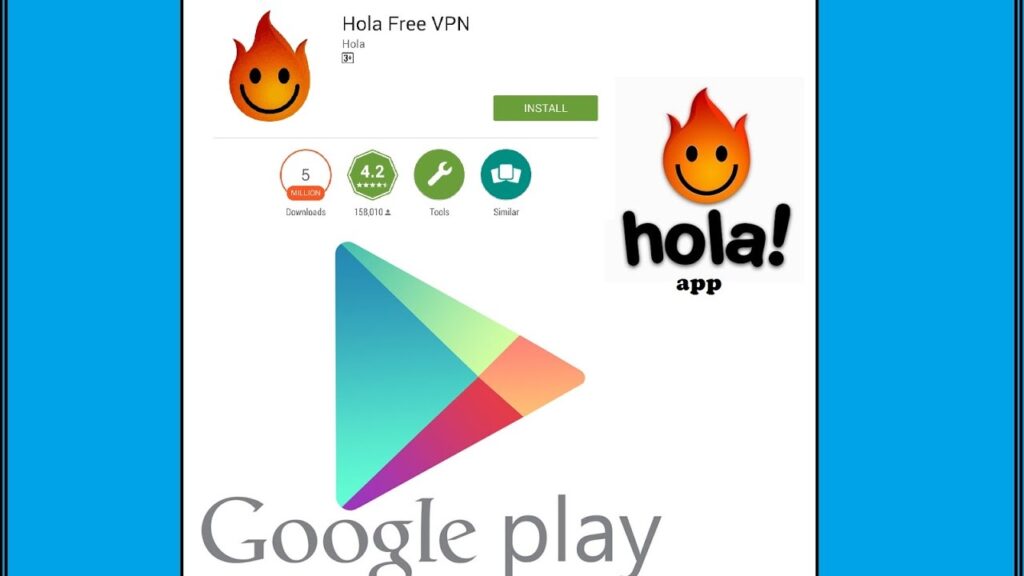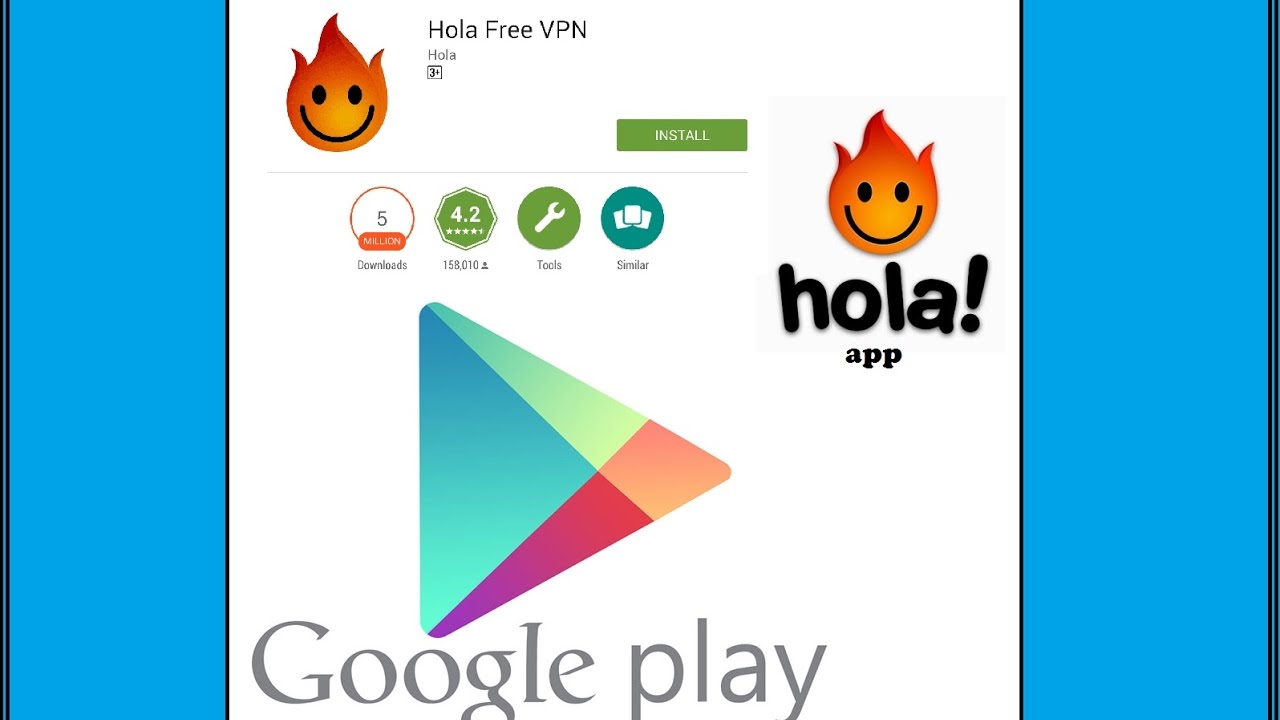
Hola Browser: Unveiling the Truth About This Controversial VPN Browser
The internet is a vast and often unpredictable landscape. In the pursuit of unrestricted access and enhanced online privacy, users often turn to VPNs and proxy services. One such service that has garnered both attention and controversy is Hola Browser. This article delves into the intricacies of Hola Browser, examining its features, functionalities, and the underlying concerns that have plagued its reputation.
Hola Browser is marketed as a free VPN browser that allows users to bypass geo-restrictions and access content from around the world. On the surface, this proposition seems appealing. However, a deeper look reveals a more complex and potentially problematic reality.
What is Hola Browser?
Hola Browser, at its core, is a web browser with an integrated VPN service. Unlike traditional VPNs that route your traffic through dedicated servers, Hola Browser operates on a peer-to-peer network. This means that users share their bandwidth and IP addresses with other users on the network. This is the foundational aspect that separates it from conventional VPN services and is the root of many concerns.
The browser is available for various platforms, including Windows, macOS, Android, and iOS, as well as a browser extension for Chrome, Firefox, and other browsers. The allure of free and unrestricted access has attracted millions of users worldwide.
How Hola Browser Works: A Peer-to-Peer Network
The peer-to-peer network is the defining characteristic of Hola Browser. When you use Hola Browser, your internet traffic is routed through other users’ devices, and conversely, other users’ traffic is routed through your device. This creates a distributed network where everyone contributes bandwidth and resources.
The benefit, according to Hola Browser, is that this model allows them to offer the service for free. By leveraging the resources of its users, they avoid the costs associated with maintaining dedicated servers. However, this approach has significant implications for security and privacy.
The Controversies Surrounding Hola Browser
Hola Browser has faced numerous criticisms and controversies over the years. These concerns primarily revolve around security, privacy, and ethical considerations.
Security Risks
One of the most significant concerns is the security risk associated with using a peer-to-peer VPN. Because your internet traffic is routed through other users’ devices, your data becomes vulnerable to potential eavesdropping and interception. Malicious actors could exploit the network to gain access to sensitive information.
Furthermore, your IP address is shared with other users, which means that their online activities can be attributed to your IP address. If another user engages in illegal activities, your IP address could be implicated, potentially leading to legal repercussions.
Privacy Concerns
Privacy is another major concern. Hola Browser has been accused of logging user data and selling it to third parties. While the company claims to have revised its privacy policy, the lack of transparency and the inherent nature of the peer-to-peer network raise serious questions about data privacy.
The fact that your bandwidth is being shared with other users also means that your internet speed and performance can be affected. You may experience slower browsing speeds and increased latency, especially during peak hours.
The Luminati Network
Perhaps the most controversial aspect of Hola Browser is its association with Luminati, a commercial VPN service that leverages the Hola Browser network. Luminati allows paying customers to use the bandwidth and IP addresses of Hola Browser users for various purposes, including web scraping, market research, and ad verification.
This means that your computer could be used as an exit node for Luminati customers, potentially exposing you to legal risks and ethical concerns. Users were often unaware that their resources were being used for commercial purposes, leading to accusations of deceptive practices.
Is Hola Browser Safe to Use?
Given the security and privacy concerns, it’s difficult to recommend Hola Browser as a safe and reliable VPN solution. The risks associated with the peer-to-peer network, the potential for data logging, and the connection to Luminati outweigh the benefits of free access to geo-restricted content.
If you’re looking for a VPN, it’s generally advisable to opt for a reputable provider that uses dedicated servers and has a transparent privacy policy. While these services may come with a subscription fee, they offer a much higher level of security and privacy.
Alternatives to Hola Browser
Fortunately, there are numerous alternatives to Hola Browser that offer similar functionality with better security and privacy. These include:
- ExpressVPN: A premium VPN provider known for its fast speeds and robust security features.
- NordVPN: Another popular VPN provider with a strong emphasis on privacy and security.
- Surfshark: A budget-friendly VPN provider that offers unlimited device connections.
- ProtonVPN: A VPN provider that prioritizes privacy and transparency, based in Switzerland.
- Windscribe: A VPN provider with a generous free plan and a focus on user privacy.
These VPNs use dedicated servers, employ strong encryption protocols, and have transparent privacy policies, making them a safer and more reliable choice than Hola Browser. [See also: VPN Comparison: ExpressVPN vs. NordVPN]
The Importance of Understanding VPN Risks
The Hola Browser case serves as a cautionary tale about the importance of understanding the risks associated with VPN services. Not all VPNs are created equal, and some may compromise your security and privacy in exchange for free access.
Before using any VPN, it’s crucial to research the provider, read reviews, and understand the underlying technology. Look for VPNs that have a clear privacy policy, use strong encryption, and have a proven track record of protecting user data. [See also: Choosing the Right VPN for Your Needs]
Conclusion: Proceed with Caution When Considering Hola Browser
Hola Browser presents a tempting offer of free and unrestricted access to online content. However, the security and privacy risks associated with its peer-to-peer network and its connection to Luminati make it a problematic choice. While the concept of Hola Browser may seem innovative, its execution raises serious concerns that should not be ignored.
For users who value their online security and privacy, it’s best to avoid Hola Browser and opt for a reputable VPN provider that prioritizes user protection. The peace of mind that comes with knowing your data is secure is well worth the investment. Always remember that when it comes to online privacy, you often get what you pay for. A free service like Hola Browser often comes with hidden costs in the form of compromised security and privacy. [See also: The Future of VPN Technology]
Ultimately, the decision of whether or not to use Hola Browser rests with the individual user. However, it’s essential to make an informed decision based on a thorough understanding of the risks and benefits involved. By prioritizing security and privacy, you can protect yourself from potential threats and enjoy a safer and more secure online experience. The allure of free services should always be tempered with a healthy dose of skepticism and a commitment to protecting your digital footprint. The Hola Browser story underscores the critical need for vigilance in the digital age.

